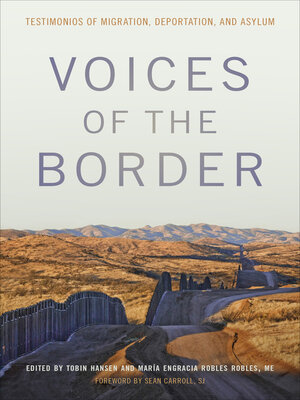
Sign up to save your library
With an OverDrive account, you can save your favorite libraries for at-a-glance information about availability. Find out more about OverDrive accounts.
Find this title in Libby, the library reading app by OverDrive.



Search for a digital library with this title
Title found at these libraries:
| Loading... |
A collection of personal narratives of migrants crossing the US-Mexico border, Voices of the Border brings us closer to this community of people and their strength, love, and courage in the face of hardship and injustice. Chapter introductions provide readers with a broader understanding of their experiences and the consequences of public policy.
|Powerful personal accounts from migrants crossing the US–Mexico border provide an understanding of their experiences, as well as the consequences of public policy
Migrants, refugees, and deportees live through harrowing situations, yet their personal stories are often ignored. While politicians and commentators mischaracterize and demonize, herald border crises, and speculate about who people are and how they live, the actual memories of migrants are rarely shared. In the tradition of oral storytelling, Voices of the Border reproduces the stories migrants have told, offering a window onto both individual and shared experiences of crossing the US–Mexico border.
This collection emerged from interviews conducted by the Kino Border Initiative (KBI), a Jesuit organization that provides humanitarian assistance and advocates for migrants. Based in Nogales, Arizona, and Nogales, Sonora—twin border cities connected by shared histories, geographies, economies, and cultures—the editors and their colleagues documented migrants' testimonios to amplify their voices. These personal narratives of lived experiences, presented in the original Spanish with English translations, bring us closer to these individuals' strength, love, and courage in the face of hardship and injustice. Short introductions written by migrant advocates, humanitarian workers, religious leaders, and scholars provide additional context at the beginning of each chapter.
These powerful stories help readers better understand migrants' experiences, as well as the consequences of public policy for their community.
Royalties from the sale of the book go to the Kino Border Initiative.






